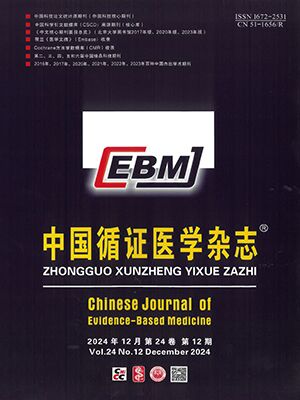Objective To assess the effectiveness and safety of edaravone for acute cerebral infarction.
Methods We searched The Cochrane Central Register of Controlled Trials ( Issue 2, 2005 ), MEDLINE ( 1966 to Aug. 2005), EMBASE ( till Aug. 2005 ), the China Biological Medcine Database ( till Aug. 2005 ), the Chinese Stroke Clinical Trials Database ( till August 2005 ) and the reference lists of related articles. Two reviewers independently selected studies, assessed quahty of studies and extracted data. The RevMan 4.2 software was used for statistical analysis.
Results We identified 12 randomized controlled trials, of which 9 ( n = 948 ) were included. The level of methodology quality was B. Since the conventional therapy was different among some studies, the improvement of disability and long-term death rate and incidence of adverse reactions were not included by meta-analysis. Meta-analysis on the improvement of neurological deficit showed a better effectiveness of edaravone than control with statistical significance [ OR2.98, 95% CI ( 1.39,6.39 ) ]. Possible adverse reactions to edaravone included abnormal liver function and skin rash.
Conclusions With relatively poor quality of most included trials and small sample size, insufficient evidence is obtained to support the conclusion that edaravone is safe or effective in the treatment of acute cerebral infarction. Further high quality and large sample randomized controlled trials should be carried out.
Citation: YANG QingWei,LIU Ming,ZHANG ShiHong,WU Bo. Edaravone for Acute Cerebral Infarction: A Systematic Review. Chinese Journal of Evidence-Based Medicine, 2006, 06(1): 18-22. doi: Copy
Copyright © the editorial department of Chinese Journal of Evidence-Based Medicine of West China Medical Publisher. All rights reserved




